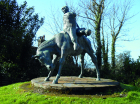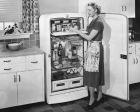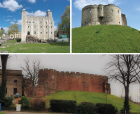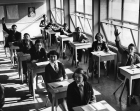Evidence
The use of sources within history lessons has consistently been included within the National Curriculum in England and as a specific assessment objective at GCSE and A-level, on the grounds that unless students know how claims about the past are generated and validated within the subject community, they will be poorly equipped to make sense of or to discriminate between conflicting claims about the past. While the use of sources depends on a process of critical evaluation, history teachers and curriculum designers are now very aware of the risks associated with reducing such evaluation to a series of mechanistic formulae in which ‘source work’ is detached from the enquiry process of answering specific and worthwhile questions about the past. The materials in this section help alert teachers to those risks as well as illuminating important misconceptions that may prevent students from developing a more powerful conception of the nature of historical knowledge The resources here offer a range of practical strategies, rooted in academic and practitioner research, for equipping students to use sources of many different kinds as evidence (rather than merely passing judgment on them). Read more
-

Broadening Year 7’s British history horizons with Welsh medieval sources
ArticleClick to view -

Cunning Plan 191: diving deep into ‘history from below’ with Year 8
ArticleClick to view -

‘Miss, what’s the point of sources?’ Helping Year 11 to understand the discipline
ArticleClick to view -

Decolonising sources: helping Year 9 pupils critically evaluate colonial sources
ArticleClick to view -

Move Me On 191: using sources in lessons
ArticleClick to view -

‘But they just sit there’: using objects as material culture with Year 8
ArticleClick to view -

Practical demonstration: powerful and rigorous history teaching for all
ArticleClick to view -

Fifties Britain through the senses: ‘never had it so good’?
ArticleClick to view -

Using eighteenth-century material culture to develop evidential thinking in Year 8
ArticleClick to view -

Using Lesson Study to make microimprovements in teaching Year 8 how to use sources
ArticleClick to view -

Learning from a pandemic
ArticleClick to view -

Creating a progression model for teaching historical perspectives in Key Stage 3
ArticleClick to view -

It’s just reading, right? Exploring how Year 12 students approach sources
ArticleClick to view -

Dialogue, engagement and generative interaction in the history classroom
ArticleClick to view -

What Have Historians Been Arguing About... Histories of education – and society?
ArticleClick to view -

Historical learning using concept cartoons
ArticleClick to view -

Building local history into the curriculum
ArticleClick to view -

Year 7 use oral traditions to make claims about the rise and fall of the Inka empire
ArticleClick to view -

What Have Historians Been Arguing About... medieval science and medicine?
ArticleClick to view -

Using oral history to enhance a local history partnership
ArticleClick to view

